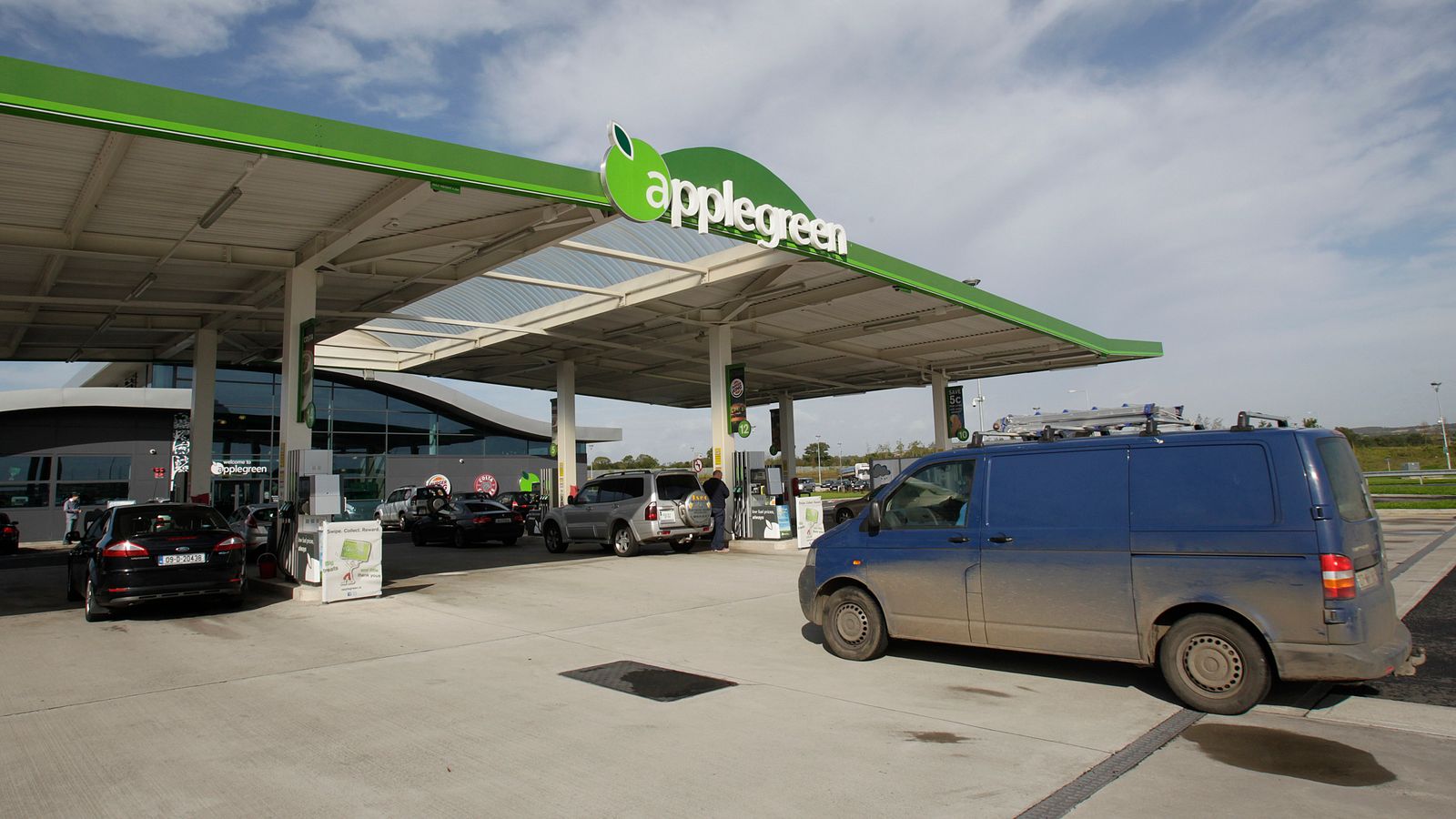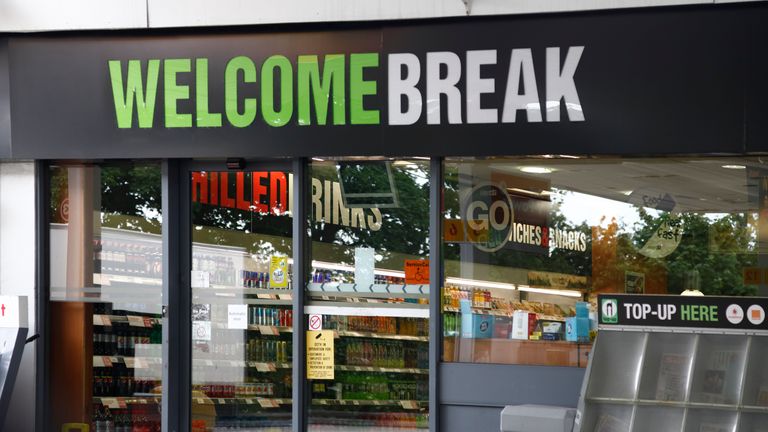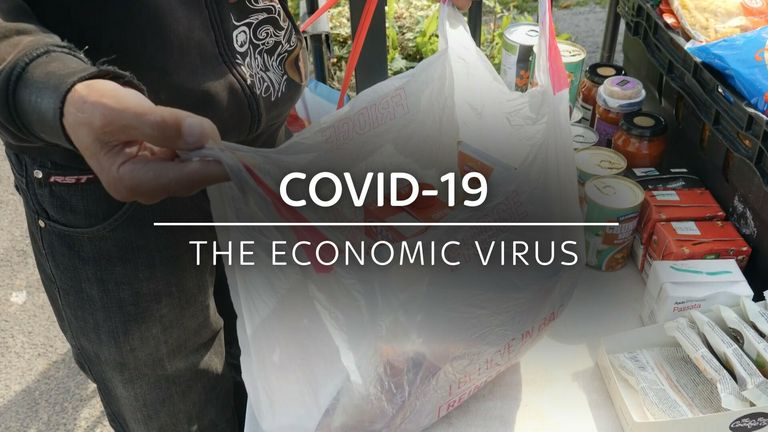It was quite the marketing gimmick.
To commemorate one of its customers winning the €88.5m (£80.9m) EuroMillions jackpot with a ticket bought at one of its service stations, on the M1 Northbound at Lusk in County Dublin, Applegreen cut fuel prices at the station to 88.5 cents (80p) per litre.
In January 2017, with a litre of unleaded costing closer to €1.40 (£1.28), that represented a significant bargain – and a queue swiftly formed.
It was so vast that, when it spilled onto the motorway itself, Ireland’s National Roads Authority ordered the company to stop the promotion.
Bob Etchingham, chief executive, blamed the company’s chief operations officer, Joe Barratt, his co-founder.
He later told the Irish Times: “I was away at the time. I think the idea behind the promotion was Joe’s. If I was here, I’d probably have said no.”
It appears to be one of the few occasions on which the two men appear not to have agreed.
The pair have had an exceptionally successful working relationship in every other way.
And today they teamed up with Blackstone Infrastructure Partners, the private equity firm, to take Applegreen private in a €718.1m (£656m) takeover.
It brings to an end the company’s relatively short life on the Alternative Investment Market in London and the Euronext Growth Market in Dublin.
Applegreen, which is Ireland’s largest petrol station and forecourt operator and the second-largest in the UK, only came to market in June 2015.
It is a period during which it has seen spectacular growth.
At the time of its flotation, Applegreen had 173 sites and achieved annual earnings of €28.9m (£26.4m).
Today, it has 559 sites – in which it employs 11,145 people – and achieves annual earnings of €140.4m (£128.3m).
Along the way, it has also become the majority shareholder in the famous Welcome Break motorway services business in the UK, while also building up its presence significantly in the United States.
All told, it now has 204 sites across Ireland, 164 in the UK and 191 in the US.
Welcome Break also brought with it 29 hotels trading under the Days Inn and Ramada brands.
So why the ‘take-private’ in the jargon?
Simply because the shares are going cheap.
Applegreen shares were floated at €3.80 (£3.50) each and, in September 2018, hit an all-time high of €5.98 (£5.46).
This year, however, they have suffered a precipitous decline and, at the height of the coronavirus pandemic worries on 27 March this year, went rattling back all the way to €1.78 (£1.63) at one stage.
They went on to rally to €3.60 (£3.29) earlier this month but this was considered by many to still undervalue the business.
Davy, the Dublin-based stockbrokers, put a break-up value on the business of €7.60 (£6.94) a share in October.
On that basis, the €5.75 (£5.25) a share takeover price looks to be a bargain – although the company itself highlighted today it represents a near 64% premium to the average share price during the three months leading to news of a possible offer.
It is hard to explain why the business – which was 41.3% owned by Mr Etchingham and Mr Barratt’s company, B & J Holdings – appeared to be so undervalued by investors.
The main theory seems to be that, after the landmark acquisition of 50.1% of Welcome Break in 2018 for €361.8m (£330.5m), shareholders were uneasy about the levels of net debt in the company.
This shot up to €550m (£502m) at the end of June this year – and investors seemed oddly unmoved by the fact that the majority of that debt resided within Welcome Break itself rather than the wider Applegreen group.
There also appears to remain a perception among some investors that the group is involved in a low-margin activity.
This is true only up to a point.
Fuel retailing is certainly a low-margin business but it is only a small part of what Applegreen does.
Two-thirds of the group margin comes from operating convenience stores and selling food rather than simply selling petrol.
Either way, the persistent weakness in the share price represented an opportunity for the founders – who have raised €49m (£45m) in share sales since the flotation – to snap up the business cheaply.
Mr Etchingham said today: “Looking forward, Applegreen will transition its business through capital intensive highway projects and electric vehicle charging infrastructure to meet the needs of an evolving consumer.
“We believe private ownership is the appropriate structure for this transition and that in Blackstone Infrastructure Partners, with its long-term focus and its significant ability to accelerate our growth, we have found the right partner for the next stage of the Applegreen journey.”
The takeover is all a far cry from 1992 when Mr Etchingham, a former executive with Esso in the UK and Ireland, opened his first petrol station in Ballyfermot in West Dublin.
Mr Barratt, who worked in marketing for Tesco and the food company John West, joined the following year.
The pair built up the business, which was originally called Petrogas, gradually during the 1990s as the big oil majors quit the Irish market in despair at their inability to make a profit.
But the big step-change in the pace of growth came when, in 2006, the pair launched the Applegreen brand and began offering a more distinctive food offering.
As Mr Barratt told the Irish Independent last year: “You might stop for fuel once a week, but you’ve to eat a few times every day.”
The move came as the Irish public was changing its eating habits and becoming more used to buying food on the go.
Their growth in Ireland and Britain has also coincided with a contraction in the number of petrol stations in both markets.
From more than 13,100 in the UK at the beginning of the century, there are now fewer than 8,400, while the number in Ireland has more than halved.
Applegreen has emerged as a leading player in both countries in much smaller markets.
The business model is not unique.
In the UK, Euro Garages, founded by Mohsin and Zuber Issa, also put a greater emphasis on the food and drink offering in their business.
It has proved a platform for the brothers to buy Asda.
Applegreen is not of the same order but it is nonetheless a true Irish success story.
Too bad it will shortly be one in which public market investors will no longer be able to participate.


